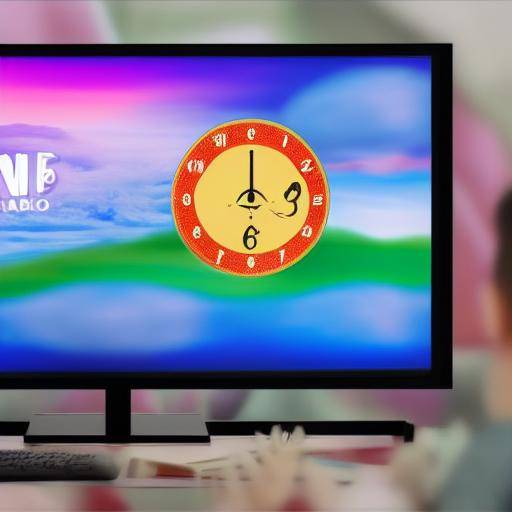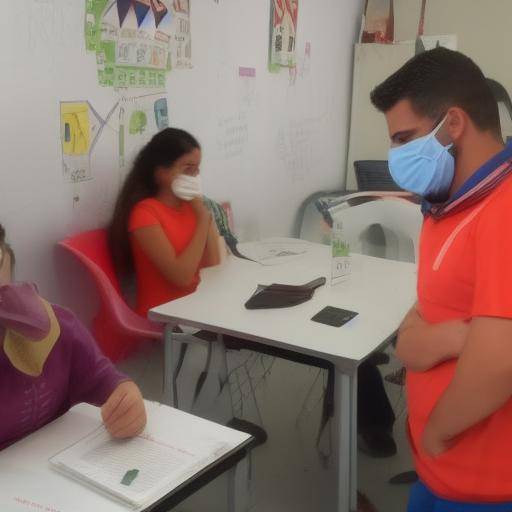
Stress is a common condition in modern life that can affect our health, well-being and performance. Learning to handle stress effectively is crucial to maintaining a mental and physical balance. In this article, we will explore practical strategies and tips for managing stress effectively, providing an integral view of this topic so relevant in contemporary life.
Introduction
Stress is a natural response of the body against challenging or threatening situations. However, prolonged or chronic stress may have negative effects on physical and mental health. In this article, we will explore how to handle stress effectively, providing practical advice backed by science and experience. From relaxation techniques to lifestyle changes, we will discover effective strategies to face stress.
History and Background
The concept of stress has its roots in antiquity, but its modern understanding developed throughout the twentieth century. Hans Selye, an endocrinologist, is widely recognized for his pioneering work in the study of stress and its impact on the human body. Stress has been the subject of research and debate for decades, leading to important advances in psychology, medicine and neuroscience.
Evolution of the Understanding of the Stress
Over the centuries, the concept of stress has evolved, from being considered exclusively as a physical reaction to being understood also as an emotional and mental response. As society has undergone significant changes, stress has become a central issue in the area of health and well-being.
Significant Hituses in Research on Stress
- 1936: Hans Selye coins the term "stress" to describe the body's response to harmful stimuli.
- 1950: Selye formulates the theory of "general stress response", identifying specific phases of stress adaptation.
- 1970: Chronic stress is recognized as a risk factor for cardiovascular diseases and other health disorders.
- 1990: Neuroscience advances reveal the complex interaction between stress, brain and nervous system.
Analysis in Deep
Stress can manifest in various forms, including labor stress, family stress, financial stress, among others. In addition to its negative aspects, stress can be a source of motivation and personal overcoming. It is essential to understand the benefits and challenges associated with stress in order to manage it effectively. Then we explore the various facets of stress and its impact on everyday life.
Benefits of Stress
Moderate stress can stimulate creativity, promote resilience and trigger adaptive responses in crisis situations. Stress activation can be an impulse to improve performance and overcome challenges, as long as it is managed properly.
Prolonged Stress Challenges
Chronic stress, on the other hand, may have harmful effects on mental and physical health. Anxiety, depression, sleep disorders and reduced immunity are just some of the negative impacts of prolonged stress. Identifying and mitigating chronic stress is essential to preserving long-term health and well-being.
Current Trends in the Stress Management
At present, stress management has evolved considerably, with more holistic approaches that integrate mind-body techniques, such as meditation, yoga and full attention. Cognitive-behavioral therapy and time management also play a crucial role in the effective management of stress.
Comprehensive review
Effective stress management involves the application of adaptive strategies that address the underlying causes of stress. It is essential to understand techniques and approaches that adapt to individual needs, allowing each person to find a personal and lasting balance. We will then examine various applications, case studies and best practices for stress management.
Practical Applications of Stress Management
Stress management can be incorporated into multiple spheres of life, including the workplace, the domestic environment and social interactions. Adopting a proactive attitude towards stress management can be beneficial at both personal and professional levels.
Case Studies and Best Practices
The detailed analysis of real cases allows us to identify effective strategies for stress management. Case studies in labour, educational and community environments offer valuable insights on how to address stress from a variety of contexts.
Comparative analysis
Compare and contrast different approaches to stress management provides a wider and deeper understanding of effective strategies. In examining the diversity of methods and approaches, it is possible to identify best practices for specific situations.
Practical Tips and Accessible Recommendations
Effective stress management requires a comprehensive approach that combines multiple strategies and techniques. Below, we present practical advices backed by scientific evidence that can help manage stress effectively in everyday life.
Tips to Manage the Stress
- Practice full attention: Dedicating time to meditation and full attention can reduce stress levels and promote mental calm.
- Regular exercise: Regular physical activity releases endorphins, known as "happiness hormones", which can counter the negative effects of stress.
- Setting limits: Learning to say "no" and setting healthy limits is essential to preventing stress overload.
- Time Management: Efficiently organizing tasks and setting priorities can reduce the feeling of overwhelming and constant pressure.
- Social Connection: Maintaining strong and supportive relationships can provide an emotional shock absorber in the face of stressful situations.
Conclusions and FAQs
Conclusions
Effective management of stress is a fundamental aspect of preserving health and well-being in everyday life. By adopting holistic approaches that address both the physical and emotional aspects of stress, it is possible to face the challenges with resilience and serenity.
Frequently asked questions
How can I recognize the signs of stress in my daily life?
It is crucial to be attentive to changes in mood, sleep, appetite and energy, as they can be early signs of stress.
What are the most effective relaxation techniques for managing stress?
Meditation, deep breathing, yoga and visualization are effective techniques to reduce stress and promote inner calm.
Does stress affect men and women differently?
If stress can be manifested differently in men and women, and stress management strategies can be adapted according to the needs of each gender.
How can I implement stress management in my workplace?
Fostering a healthy working environment, promoting active breaks and providing resources for stress management are effective strategies to address stress at work.
Is it possible to manage stress without medication?
Yes, stress management can be addressed through non-pharcologic approaches, including alternative therapies, lifestyle changes and relaxation techniques.
How does stress affect cardiovascular health?
Chronic stress can contribute to a higher risk of cardiovascular disease, such as hypertension, heart disease and heart rate disorders, so it is essential to manage stress to protect the health of the heart.
External Links
For more information on stress management and its health effects, we recommend that you consult the following external links:
- National Institute of Mental Health - Stress
- World Health Organization - Stress coping strategies
- Centers for Disease Control and Prevention - Stress management
Learning to handle stress effectively is crucial to enjoy a balanced and healthy life! We hope this article has provided you with the tools and knowledge necessary to effectively address stress in your daily life.
Remember that stress management is an individual and unique process, so it is important to explore various strategies and find those that best fit your needs and preferences. With focus, support and perseverance, it is possible to face stress with calm and resilience.
Keep a positive and proactive attitude towards stress, and always remember that caring for your emotional and mental well-being is essential to living a full and satisfying life!






















































